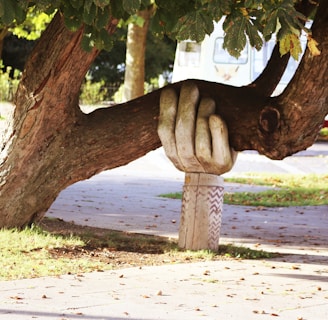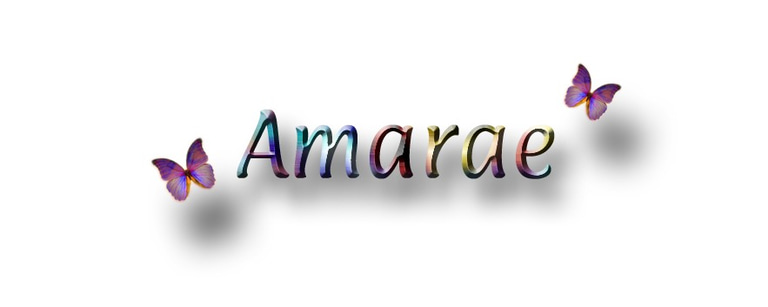
Amarae Inspirational
Have We Forgotten How to Care? A Single Act of Kindness Ripples Further Than You Think
We live in an age of endless connection, yet true kindness and empathy often feel harder to find. Compassion isn’t just about being “nice”, it’s about creating genuine understanding and human warmth in a world that sometimes feels rushed, divided, and overwhelming. The beautiful thing about compassion is that it never stops with one act; it creates a ripple effect. A single choice to listen, to be patient, or to show kindness can inspire others to do the same, spreading further than we may ever see. Maybe compassion isn’t lost at all; maybe it’s waiting for us to notice it again.
Rosita
8/16/20255 min read


Compassion in a Modern World: Why We Need It Now More Than Ever
We live in a world that feels more connected than ever before, yet many of us would agree that true human connection sometimes feels like it is harder to find. Technology keeps us in constant touch with each other, but the warmth of a real conversation, understanding, patience, and genuine care can feel like it’s slipping away.
One quality in particular seems to be fading in today's noise: compassion.
Compassion is not just a nice idea, it is and should be so much more, it’s the ability to recognize the struggles of others and to respond with kindness.
It’s what allows us to stand in someone else’s shoes for a moment and say
... I may not have all the answers, but I see you, and you matter ...
Without compassion, our communities weaken, isolation grows, and division deepens. But with it, we create healthier relationships, stronger communities, and a world where people are less alone.
The good news?
I do not believe that compassion is lost. It’s still within us, waiting to be nurtured, to be activated, to be recognised.
And every single one of us has the ability to bring it back into our daily life, into our interaction with others.
Compassion Isn’t Just Personal, It’s Cultural.
It’s easy to think of compassion as something we practice on a personal level, but it’s also a social value.
Cultures that encourage kindness, understanding, and empathy thrive because people feel safe and supported.
When compassion is absent, mistrust and conflict take root, and both individuals and societies suffer because of it.
But why Are We Struggling With Compassion?
I believe that one of the reason is that modern life often pushes us toward individualism and competition.
We are encouraged to focus on our own goals, our own image, and our own achievements. Which in itself is not bad,
unless it comes at the cost of caring about what’s happening around us and social media has amplified this.
You do not need to show vulnerability but show authenticity!
Many people present polished versions of their lives, a highlight reel of accomplishments and possessions.
I know I have said that before but presenting a polished version of your life, of who you are and what you do,
has consequences, because you will have to spend a lot of time and energy preventing other from seeing the real you,
your real life and over time, this makes us more self-absorbed and less attentive about the needs of others.
And let's be honest, constant exposure to these highlight reels can and will also breed comparison,
criticism, and disconnection rather than empathy.
Social Media: A Double-Edged Sword
To be fair, social media has also changed the way we connect in positive ways.
It lets us keep in touch with loved ones, share experiences, and even build communities across the globe.
So it is not all bad, but it does come with some serious downsides that affect compassion ... Anonymity fuels hostility!
People often say things online they would never say face-to-face. But even if said anonymously, the words still have the potential to hurt,
but there are no consequences anymore.
No facial expression that show how hurtful the words were, no option to reply directly or explain circumstances. Without those immediate, human cues, it’s easy to forget that there’s a real person on the other side of the screen. Over time, this detachment can make it harder to recognize or care about perspectives different from our own.
Algorithms then amplify this effect… they create bubbles.
By feeding us more of what we already believe, social media can limit our exposure to new ideas or perspectives, making it harder to empathize with those who are different from us.
Negativity spreads quickly.
Outrage and criticism often get more engagement than kindness, which means hurtful content can travel faster than positive messages.
While it would be wonderful if social platforms prioritized compassion by designing features that encourage kindness and diverse perspectives, waiting for that shift isn’t practical.
What is realistic is taking responsibility for our own habits, choosing to consume and share content that builds up rather than tears down.
The Bigger Picture
Compassion is not just about being “nice.”
It’s essential for building stronger relationships,
supporting mental well-being,
and creating communities where people feel less alone.
While it might feel like compassion is fading,
it only takes one small choice at a time to bring it back.
So next time you interact with someone in your daily routine
or even online, take a moment to ask yourself:
Am I truly listening or just going through the motions?
Remember, it takes the same effort to share a positive message as it does to spread a negative one.
And when you choose compassion, you set off a ripple that touches more lives than you realize.
Compassion is a vital human trait, and it’s still ours to nurture.
Let’s make sure it grows.
What We Can Do to Cultivate Compassion?
Compassion doesn’t require dramatic actions. It’s built in small, everyday moments. Here are a few ways to strengthen it in your own life:
Practice awareness:
Notice your own thoughts and emotions without judgment. The more you understand yourself, the easier it becomes to understand others
Look for opportunities to help:
Hold a door, check in on a friend, or volunteer when you can. Small acts of kindness grow into habits of compassion.
Be intentional online:
Share posts that uplift, inspire, or bring balance. Algorithms will serve you more of what you engage with, so let them work in your favor.
Model compassion for children:
Kids learn from what they see. When parents and adults show kindness in action, children naturally absorb that value.




Bringing Compassion Back Into Daily Life
The beauty of compassion is that it’s not confined to grand moments.
It can be so easily integrated into the way we live, speak, and listen every single day.
Listen, truly listen when someone shares their struggles,
resist the urge to fix, judge or replying by telling your own struggles.
Often, what they need most is to feel heard.
Pause before reacting.
In moments of conflict or frustration, take a breath.
Ask yourself, What might this person be going through that I can’t see?
Practice small acts of kindnesses.
Compliment someone, send a thank-you note, or simply smile at a stranger. These gestures ripple outward in ways you may never see.
Be compassionate with yourself. Self-compassion matters.
The way you speak to yourself shapes how naturally you extend kindness to others and it encouraging compassion in Others
Compassion becomes stronger when it spreads. While we can’t force others to act kindly, we can inspire them. Lead by example.
People often mirror the behavior they see. When you choose patience or kindness, others take notice. Recognize acts of kindness.
Appreciation reinforces compassion.
When someone does something thoughtful, acknowledge it.
Create safe spaces.
Whether at work, at home, or in an online group, encourage respectful, judgment-free conversations. Share uplifting stories.
Compassion is contagious. Highlight examples of kindness in your conversations or online presence to remind others of its importance.




Connect & Inspire
© 2025. All rights reserved.
Subscribe to our Newsletter
Good Times
Once every 2 months
